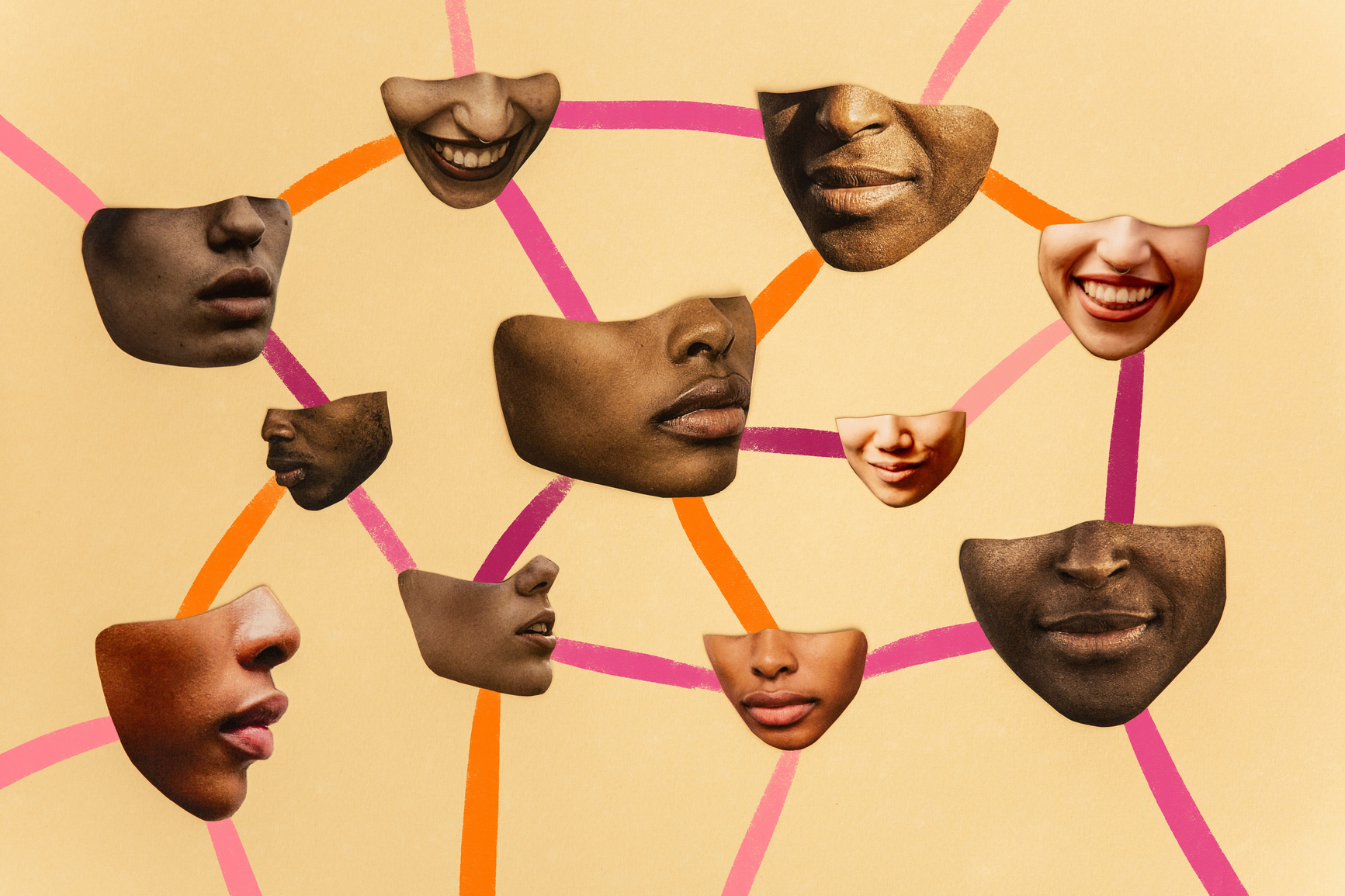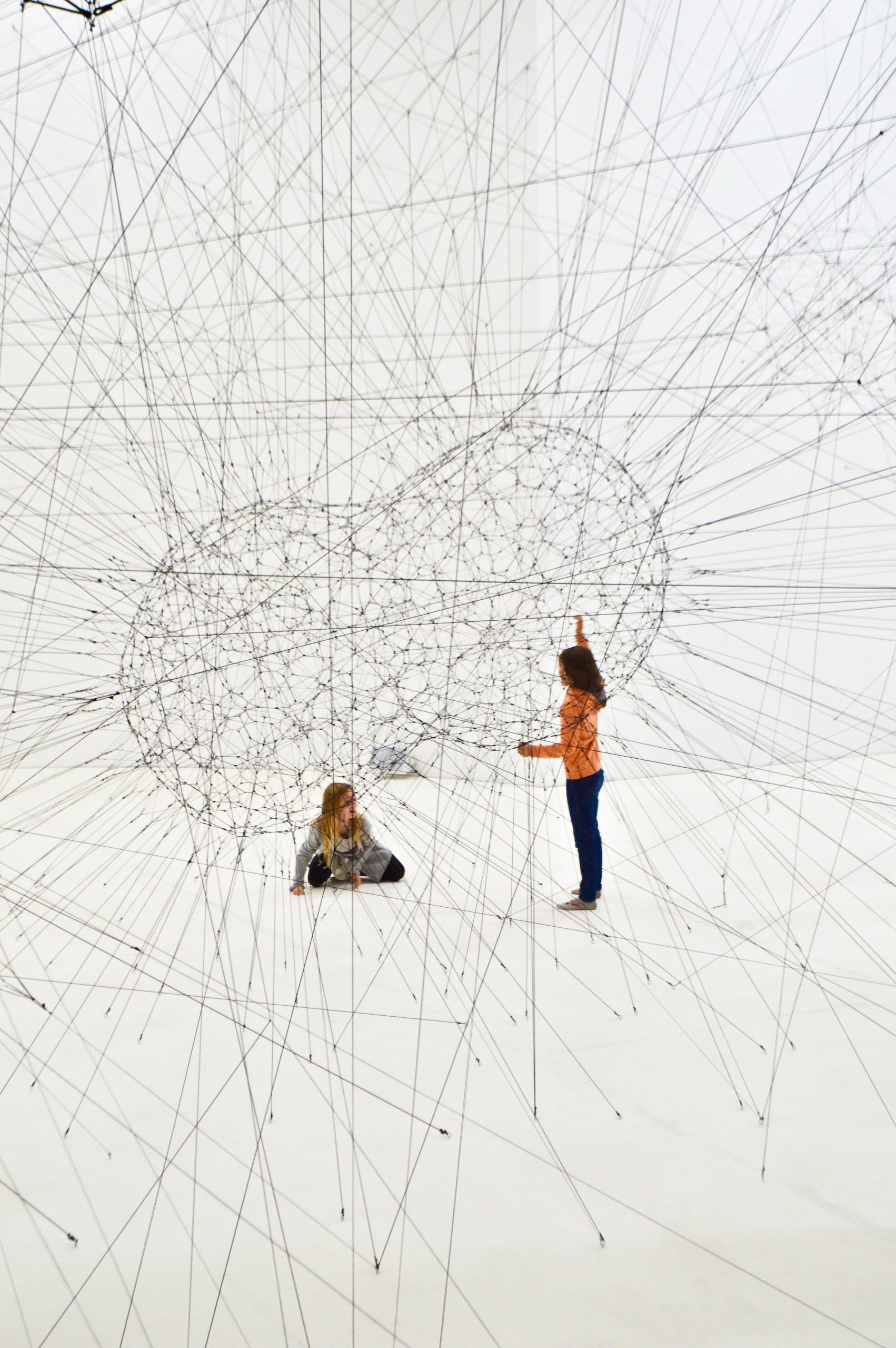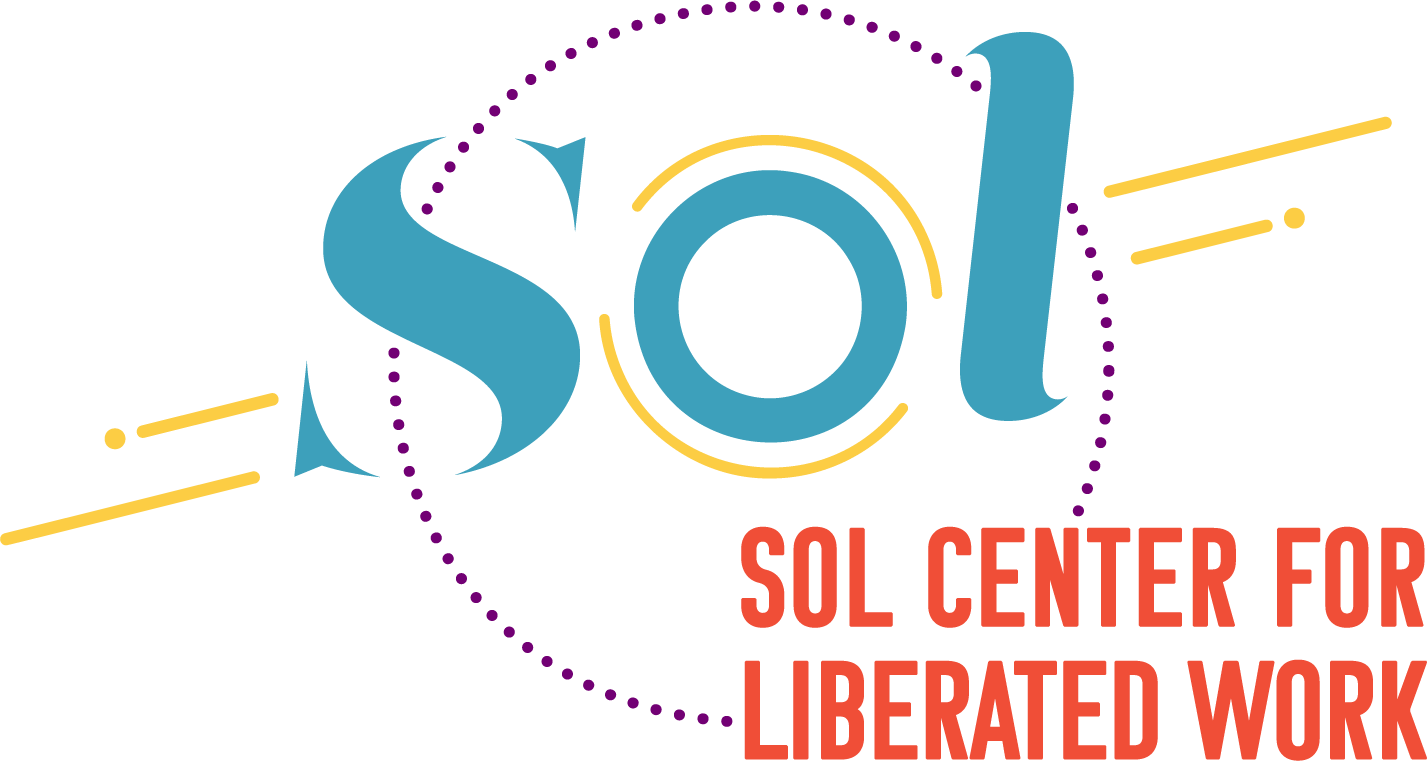Portfolio of Activities
A Journey: Research to Impact Lab
Building Futures for Everyone Since 2022
Our Current Portfolio of Activities Since Launch
We need a new cultural paradigm for everything from our political economy to how we care for people.
Launched January 2022, R2I Lab is still developing as a relatively new program of the Center for Cultural Innovation (CCI) to bring about alternative systems and solutions for the new reality of work.
Our Activities
R2I Lab conducts research, builds relationships and policy coalitions across silos, advocates for common causes, and invests in seeding or starting up new enterprises for an alternative ecosystem.
We invite you to take a deeper dive into our work thus far and to sign up for our newsletter to stay in touch with what’s next.
Incubation
Can Trust and Community Innovations be our Path to a New System?
Where trust and community support through a gig worker savings club creates the possibility for financial freedoms
The Beginning
In 2023 we ran cross-industry focus groups of individuals who identify as gig workers to understand what kind of portable benefits could be helpful in their lives. Participating gig workers ranged from industries including construction, art, events, and academia. While the types of work individuals pursued were varied, the shared worries became even clearer in our work: our current system of employer-sponsored benefits leaves many falling through the cracks for universal needs and guarantees that should be afforded to all people, regardless of their abilities and type of work they do. This problem can be further backed by many of the findings and recommendations found in our Arts Workers in CA Report conducted by Urban Institute in January 2021 with support from the William and Flora Hewlett Foundation. This seminal report became the foundation of our work at Research to Impact Lab.
In our current system, artists and other gig workers often do not get access to employer-sponsored benefits, including access to retirement or savings plans. While the "what" was diverse in what our focus groups would see as benefits to their lives (more readily accessible public transit, housing and healthcare affordability, as well as ability to take time off) the throughline undergirding the diverse worries plaguing the minds of our gig worker groups was almost too simple: financial precarity.
This made us more curious, especially with the increasing support for guaranteed income programs, what if we could pave the road for solutions built specifically for gig workers that could help solve for the financial precarity currently baked into the lives of those working outside of a standard W-2 category? Inspired by the many forms that historically extracted from communities have been forced to innovate to create their own forms of support and protections, we are excited to embark on a journey of experimentation to build new solutions with Val Elefante, a freelance research, project manager, and co-design facilitator specializing in community-led, responsible development of emerging technologies including AI and the decentralized web.
What are Possible Solutions?
A tech-enabled rotating savings and credit association (ROSCA) for artists and gig workers that leverages the power of community, in conjunction with decentralized tech infrastructure, to provide an alternative system that can help fill this gap, meet peoples' needs, and expand access to basic human rights.
Why are we doing this?
R2I Lab and our historical work at the Center for Cultural Innovation as supporters of and champions for individuals in the arts, artists, culture bearers, and creative entrepreneurs, through grantmaking, research, and capacity building programs has made us intimately aware of the issues most impacting artists and other gig workers’ ability to live full and dignified lives.
Our gig worker savings club (tentatively called “Cookie Jar Collective”) project comes from our many years of research and incubation specifically centering artists, culture bearers, and creative entrepreneurs from marginalized communities.
Why a rotating savings and credit association (ROSCA)? R2I Lab is interested in how many immigrant communities have relied on different forms of ROSCAs (Such as: Su su, Tanda, or polla) to support one another’s dreams of attaining more financial security. At the root of all rotating savings clubs is the inherent and unwavering trust necessary for its success. All participants are reliant on their community for each other’s success. Are there ways we can bring these values of community trust and accountability for EVERYONE’s success to new technologies?
Through this experiment we hope to leverage decentralized technology in response to the failures of current financial and social welfare systems, which have excluded these communities and therefore restricted their economic access and opportunities.
Through this experiment we hope to:
- Leverage the power of community, in conjunction with decentralized tech infrastructure, to provide an alternative system that can help fill this gap, meet peoples' needs, and expand access to basic human rights.
- Show examples of blockchain technology uses for the greater public good
- Legitimize gig work and other excluded forms of work by building solutions specifically for people living these types of lives
- Experiment in ways we can build and govern with the values of community trust and accountability at the center
What's Next?
- Test our ideas at DWEB Camp through a co-design session with values aligned technologists, innovators, and creatives in the Redwoods
- Invite our community to keep iterating through co-design sessions focused on different pillars of building this solution: Governance, User Experience, & Technical Backend
- Build, pressure test, and keep building
- Deliver this solution to the world to continue piloting
Join Us!
At DWeb Camp this August 7 - 11 in Navarro CA, and join our E-Newsletter to keep an eye on how you can be involved. Interested in learning more? Contact Jennelyn Bailon at jennelyn@cciarts.org
Val Elefante & Jennelyn Bailon
Val Elefante is leading our Gig Worker Savings Club project with support from R2I Lab's Jennelyn Bailon.
Val Elefante (she/they) is a freelance researcher, project manager, and co-design facilitator specializing in community-led, responsible development of emerging technologies including AI and the decentralized web. With a background in feminist political theory and economics, Val has worked on a variety of projects building more equitable and participatory governance into technology. For TechSoup, Val helped design and build a curriculum about decentralized technology for nonprofits, collecting cutting edge social impact use cases of the tech. For Metagov, Val led user research and a pilot program for an open source tool called Collective Voice, adding interoperable collective decision-making features to Open Collective. Finally, Val is also a founding team member of Lips / Reliabl where she led the co-design of a social media alternative especially for women, non-binary, & LGBTQIA+ creators with innovative, participatory data labeling and content moderation systems.
Jennelyn Bailon is a Senior Program Associate at the Center for Cultural Innovation where she advances their Research to Impact Lab and Training and Workshops. In addition to her work at CCI, she is a program manager and independent curator passionate about work that is driven by empathy, community, and empowerment working in the Education departments at institutions across the U.S. such as the J. Paul Getty Museum, Lucas Museum of Narrative Art, Museum of Modern Art and the Whitney Museum of American Art.
Are you an artist or creative worker who has dealt with an issue related to copyright?
Are you an artist or creative worker who has dealt with an issue related to copyright?
Help us protect artists' intellectual property (IP)
As defined by the U.S. Copyright Office, Copyright is a type of intellectual property (IP) that gives the creator of an original work the right to copy, distribute, adapt, display, and perform that work for a limited time.
To protect their livelihoods, artists must learn how to protect their work from copyright infringement, as well as other lesser-known copyright claims that can impact an artist’s livelihood such as noninfringement and misrepresentation.
Before the Copyright Claims Board (CCB) was created in 2020, smaller independent artists often did not have many cost or time-effective options to seek legal action when experiencing issues related to their own intellectual property (IP). This is why the CCB was created: to answer an urgent need – the large volume of copyright claims and the limited amount of resources (time, expertise, money) available to creators to make those claims in federal court.
However, even with this new resource for protecting artists, there are still many ways artists issues can fall through the cracks. Help us understand your stories related to copyright. What issues are you dealing with? What systems are out there that you are falling through? What potential copyright issues are keeping you up at night? We want to hear from you!
Thank you so much for sharing your story! We will use these examples to shape our advocacy, research, and resources on this topic, and may reach out to you for more information, or to let you know about opportunities to advance social and economic protections for all.
A Change in Name
A Change in Name
We are in the process of landing on the new name (hopefully, third time’s the charm).
In March 2023, we changed this program’s name from Rustle Lab to Sol Center for Liberated Work. As our work grew, Rustle Lab didn’t do enough to reflect our aspirations. In selecting the Sol Center name, we hoped to embed our aspirations for this work directly into the identity of the program itself. For us, Sol represented the energy of the sun to fuel new life and ecosystems. As a Spanish word, we felt it honored the immigrant and marginalized communities we hope to work alongside, as well as our California home. And it formed the root of other words that reflect the program’s priorities – solutions, solidarity, and solo workers.

Meanwhile, Liberated Work encapsulated our world-building ambitions. For us, liberated work was about self-determination by creating new systems that no longer equate “work” with “worth”; where the jobs we do to earn money do not dictate access to benefits, security, time to rest, or possibilities for the future. Liberated work is not just about how we pay our bills, but also the work we do to care for our families, participate in our communities, and freely express artistically and culturally.
When we rolled out the new name, however, we heard that it wasn’t landing in the ways we hoped. For some, Sol was too easily understood as Soul, and the deep cultural resonance that term holds for Black communities. In addition, Liberated Work was less understood as our stance on labor issues and, instead, perceived as borrowing too heavily from the language of Black Liberation movements. For others, the Spanish word Sol felt appropriating in the absence of LatinX leadership within our program.
As an arts and culture organization, we know that language and representation matter, so we have taken critical responses seriously. We are grateful for those who shared their honest reactions, all of which were shared and received as acts of solidarity and support. Hence, we are changing the program’s name and, in this process, being more deliberate and thoughtful about our intentions and how we show up.
We are in the process of landing on the new name (hopefully, third time’s the charm). If you would like to offer suggestions (we see you, creatives!), please take a look around our site, read what we’re up to, and email us ideas at solcenter@cciarts.org. No prizes awarded except the glow of knowing you are helping an endeavor that is meant to help you!



